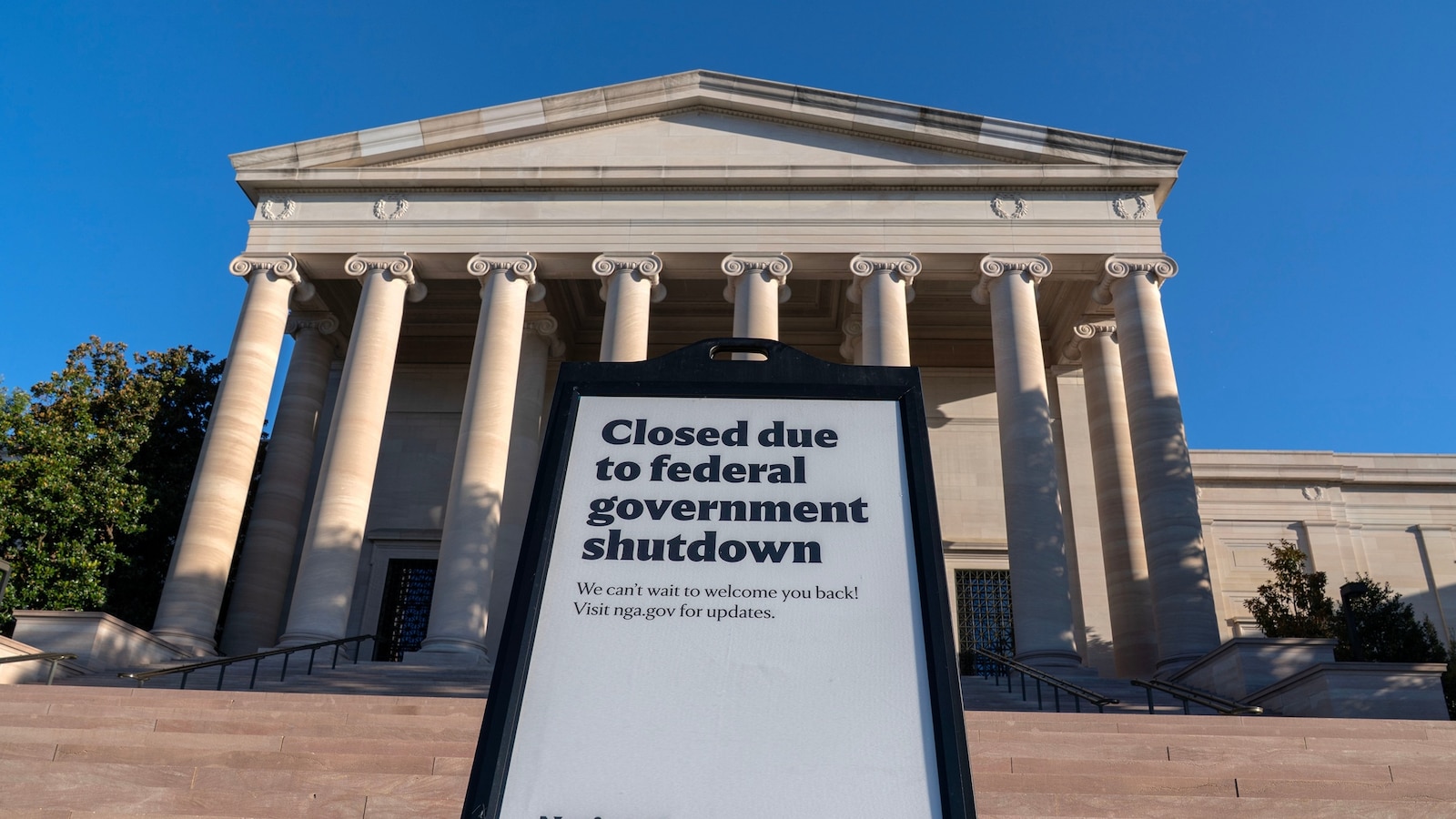Thursday marks the 30th day of the federal government shutdown and the American public has grown more concerned about the shutdown throughout the month and more disapprove of how Donald Trump is handling the federal government, according to an ABC News/Washington Post/Ipsos poll conducted using Ipsos’ KnowledgePanel.
More Americans blame Trump and the Republicans in Congress than the Democrats for the shutdown, the poll finds.



I get that politicians may get deadlocked, Belgium was almost 2 years without government not long ago.
But why does the US politicians deadlock impact public spending already allotted? Especially long running programs and public employees.
In the civilized world, budgets get extended until politicians manage to change it.
Laws were changed back around the 80s (I believe) to create this pressure. It used to be that people would still get paid, but apparently that was too functional for us.
Here’s the really bonkers thing: the actual budget is passed, they know exactly how much is meant for each agency. What’s been held up is actually putting that money in the account and authotizing the spending of it. We could have combined the two, and appropriated money in the same act that budgeted it. But we separate them, on purpose, to give the politicians more steps to negotiate things.
As far as I can tell, we are the only large country that separates budgets and appropriations like this. In most other countries, failure to fully fund the government would be seen as a sign of weakness in the government. But here, we have one party whose core mission is to shrink the size of Federal government. Conservatives here think that failing to fund the government shows strength.
wow that’s actually wildly fucked
in australia it’s not just a sign of weakness, it’s the end of your government. if you fail to pass a budget, basically the governor general (the crowns representative in australia) dismisses the government, appoints an interim government, and fresh elections are called as soon as possible
there are a few more options than this, but they all kinda amount to the same thing
How is this the first I am hearing that Belgium was just open for the taking?
And isn’t the deadlock not sposed to influence that like we’re supposed to have money for SNAP to continue.
In parliamentary systems, “not having a government” isn’t as catastrophic as it sounds. It varies by country, but generally speaking the Executive and Legislative branches are run together. When there is a clear party majority in the Parliament, that party gets to pick all the heads of the executive branch. When there is not a clear majority, but a coalition of parties that make up a majority, they negotiate which party gets to head which department.
When there is not even that coalition, nobody will agree on those department heads. The departments don’t grind to a halt in most cases. There are lower-level deputies who can take over day-to-day administration, and there are usually still funds available. But no big decisions can be made without the formal department head. It mainly runs in place. (And, without any majority in Parliament, odds are there are not any laws getting passed either).
In many countries, this condition of the Parliament existing with no governing majority can trigger a new election, so the Parliament can have a new chance to get out of its deadlock. Why was Belgium different? You’ll have to ask a Belgian.
What is going on in the US is much different. We have a government in place, it just can’t agree on funding executive agencies, and we have laws on the books that specifically restrict what agencies can do without funding. We could have structured things differently, but did not. Our politicians want this chaos, because they think they can gain politically from it.